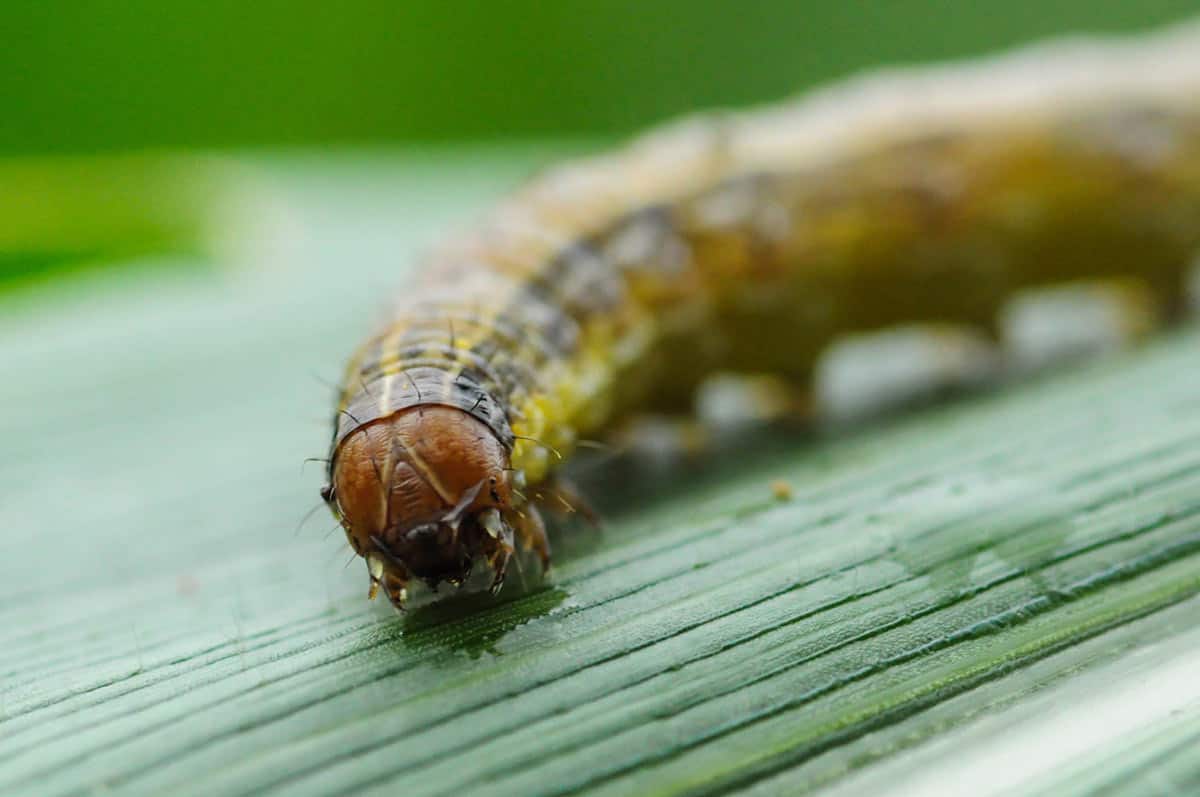
See all posts by this author
Google “Fall Armyworm” and you will come across a video that captures the essence of the problem concisely (and ominously): “It invades. It infests. It consumes.”
This pest can do widespread damage to small grain plantings in farm-focused places like Texas and Oklahoma. In and around Charlotte, it’s our lawns that are mostly at risk. The female moth will lay their egg in the sunny spot of a lawn, fescue and other species. Eggs are laid in groups of 100 to 200. The eggs are light green when they are first laid and darken with age and are dusted with gray, fuzzy scales.
The Fall Armyworm flies up from the Gulf States in mid- to late summer. Their wingspan is 1½ inches. Females’ front wings are a dark gray. Males have a white spot on each forewing. They look like a caterpillar, which will help as you work to identify them.
We all love our natural areas. That they add value, spiritually and financially, to our lives. And we know when we have a problem, though most of us don’t know precisely the nature of that problem.
Our advice, regarding the Fall Armyworm and every other lawn-and-garden issue, is to be proactive. Don’t wait and hope a dry spot or dead spot miraculously comes back to life. Call a plant and tree professional like Arborscapes, which can diagnose and treat an issue. In this case there’s a granular insect control that can do the job.
Invades. Infests. Consumes. Isn’t that enough warning to act? Call today. Let the Arborscapes Plant Healthcare team help you keep your living landscape vibrant and healthy.
See all posts by this author
